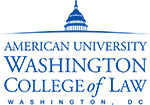Educational Fair Use Brief in Support of Georgia State University on Behalf of Amici Curiae Academic Authors and Legal Scholars
54 Pages Posted: 3 May 2013 Last revised: 5 May 2013
Date Written: April 25, 2013
Abstract
For centuries, scholars and educators have excerpted the works of their colleagues, transforming them from individual, static monographs into dynamic pedagogical and intellectual tools for classroom learning. Such transformations reside at the heart of fair use, a core copyright law doctrine established to protect socially beneficial uses of works that increase public access and promote the progress of human understanding.
In this case, Plaintiff Publishers accuse GSU and its faculty of violating their copyrights through this practice. But, as the district court correctly found, such uses are fair, especially because they primarily use factual information to promote the purposes of education and teaching, the amount taken was reasonable in light of its purpose, and because Plaintiffs’ evidence of a cognizable copyright market harm was speculative at best. However, the district court erred when it incorrectly concluded that these uses are not transformative. Using an unduly narrow definition of the concept, it failed to consider how educators repurpose scholarly works in productive ways that bring new meaning to and understanding of the works used.
As scholars and educators who produce and repurpose such works, amici urge this Court to affirm that these uses constitute a transformative use under the first fair use factor, and to reaffirm the findings under the other factors that these uses are fair. A finding of fair use in this case not only furthers the underlying goals of scholarship and education - access to knowledge - but also the very purposes of the Copyright Act itself.
Keywords: copyright, fair use, educational fair use, academic authors
Suggested Citation: Suggested Citation



